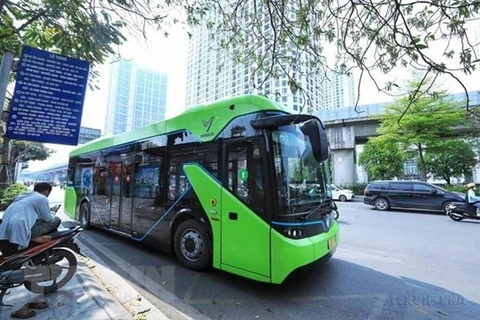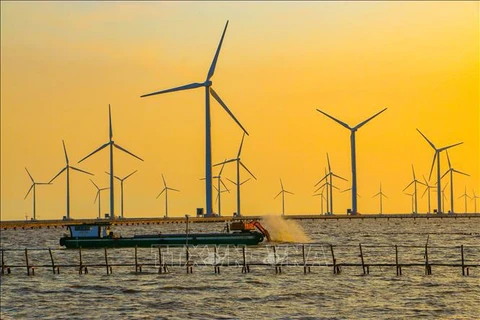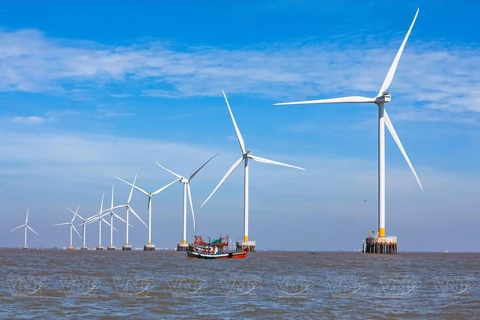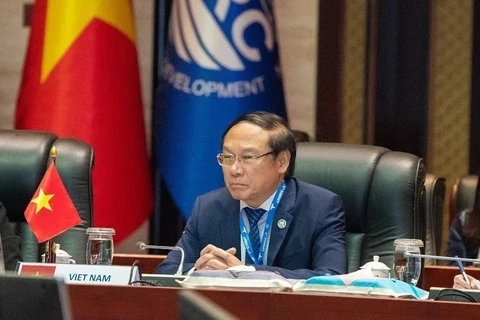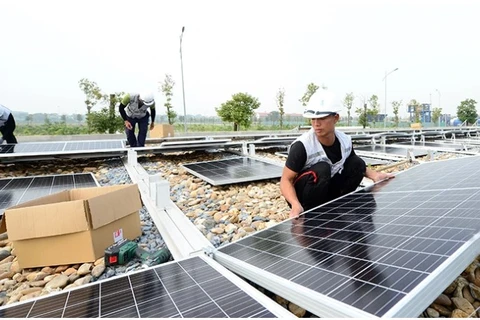 Energy transition is a "golden opportunity" for Vietnam to ensure and improve social security. - Illustrative image (Photo: VNA)
Energy transition is a "golden opportunity" for Vietnam to ensure and improve social security. - Illustrative image (Photo: VNA) According to Christensen, besides opportunities, labourers also need to be equipped with skills to change jobs, aiming for sustainable development for both businesses and workers.
At the 2021 United Nations Climate Change Conference of the Parties (COP26), Vietnam and nearly 150 other countries made strong commitments to net zero emissions by mid-century. Together with more than 100 countries, Vietnam also joined the Global Methane Pledge (GMP) to reduce methane emissions by 2030.
Vietnam is also one of the first countries, after South Africa and Indonesia, to join the political declaration on establishing the Just Energy Transition Partnership (JETP). Since then, the country has mobilised international commitments and funds to support its green transition process.
According to the Ministry of Labour, Invalids and Social Affairs (MoLISA), the energy transition process can create unfair impacts between sectors, communities, especially vulnerable groups, in several aspects such as job changes, job loss, poor skills of labourers, the mismatch between skills of existing workers and the demand of the green economy.
In particular, low-income communities can be greatly impacted by energy transition and efforts to reduce emissions as they cannot afford to pay clean and green energy costs, the ministry said.
Trinh Thi Nguyet from the MoLISA’s Department of Social Protection provides an example, emphasising the need for social protection measures for elderly workers working in thermal power plants undergoing transition or coal mines scaling down operations.
According to Chu Thi Lan from the MoLISA’s Institute of Labour Science and Social Affairs, the transition of employment during the shift to a net-zero emission economy may necessitate significant changes in the energy, transportation, and production sectors, and this could lead to the displacement of workers in those sectors.
She underlined the need to have policies to ensure that workers in these industries have access to retraining and support to change to new employment opportunities.
In the process of implementing the JETP, the MoLISA was tasked with coordinating with relevant ministries, sectors, and agencies to develop mechanisms, policies and solutions to promote equitable transition for vulnerable groups, and fair energy conversion, and respond to climate change, Lan said.
It will provide support for vocational training, retraining, job creation, and other forms of assistance for workers affected during the energy transition, and coordinate with the Ministry of Natural Resources and Environment to implement plans for mobilising resources.
The ministry will also join working groups to ensure a fair transition aligned with the ILO’s declaration on fundamental principles and rights at workplaces to ensure that the entire society can benefit from the green transition, Lan added./.
VNA

